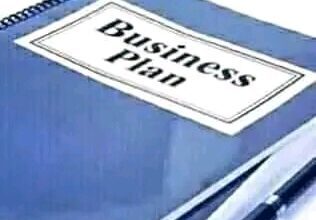Conquer Competition Stress: Personal Strategies for Success

Competition stress is a common experience, whether you’re preparing for a sports event, academic challenge, or professional competition.
The pressure to perform can be overwhelming, but there are effective strategies to manage this stress and optimize your performance.
Here are some personal recommendations to help you navigate competition stress and emerge victorious:
Practice Mindfulness and Relaxation Techniques
Engage in mindfulness and relaxation exercises to calm your mind and body. Techniques such as deep breathing, meditation, and yoga can help reduce anxiety and enhance focus. Regular practice can improve your ability to stay composed under pressure.
Visualize Success
Visualization is a powerful tool used by many athletes and performers. Close your eyes and vividly imagine yourself succeeding.
Visualize every detail – the environment, your actions, and the positive emotions associated with winning. Visualization can boost your confidence and create a mental blueprint for success.
Focus on Your Preparation
Shift your focus from the competition itself to your preparation. Concentrate on the effort and dedication you’ve put into your training or preparation.
Remind yourself of your hard work and the progress you’ve made.
Trust in your abilities and the preparation you’ve undertaken; this confidence can significantly reduce competition stress.
Develop a Pre-Competition Routine
Establish a pre-competition routine that helps you relax and get into the right mindset.
This routine can include activities like listening to music, stretching, journaling, or engaging in positive affirmations.
A consistent pre-competition ritual signals to your brain that it’s time to perform, helping you transition into a focused state of mind.
Stay Present and Manage Expectations
Focus on the present moment rather than worrying about the outcome.
Break down the competition into smaller, manageable tasks, and concentrate on each step.
Manage your expectations realistically – understand that setbacks and challenges are a natural part of any competition. Embrace them as opportunities to learn and grow.
Seek Support from Peers and Mentors
Discuss your feelings with peers, coaches, or mentors who have experienced similar competition stress.
They can offer valuable insights, share coping strategies, and provide emotional support.
Knowing that others have faced and overcome similar challenges can boost your confidence and resilience.
Maintain a Healthy Lifestyle
Prioritize your physical well-being by getting adequate sleep, eating nutritious meals, and staying hydrated. Regular exercise is also an excellent stress reliever.
A healthy body enhances mental resilience, helping you cope better with competition stress.
FAQs
How can I overcome pre-competition nerves and anxiety?
Overcoming pre-competition nerves involves practising relaxation techniques, such as deep breathing and meditation. Visualization of success, developing a pre-competition routine, and seeking support from peers or mentors can also help manage anxiety effectively.
What role does mental preparation play in dealing with competition stress?
Mental preparation is crucial in managing competition stress. Techniques like visualization, mindfulness, and staying present can enhance your mental resilience. Positive self-talk and focusing on your preparation rather than the outcome contribute significantly to handling stress effectively.
How can I build confidence before a competition?
Confidence is built through consistent preparation and positive self-affirmation. Visualizing success, acknowledging your progress, and focusing on your strengths can boost your confidence. Setting realistic goals and celebrating your achievements, no matter how small, can also enhance your self-assurance.
Are there specific relaxation techniques that work well for competition stress?
Yes, relaxation techniques like progressive muscle relaxation, guided imagery, and breathing exercises are effective for competition stress. Experiment with different techniques to find what works best for you. Regular practice of these techniques can significantly reduce anxiety and improve your performance under pressure.
Also Read: How to Correct Workplace Errors with Grace and Efficiency



